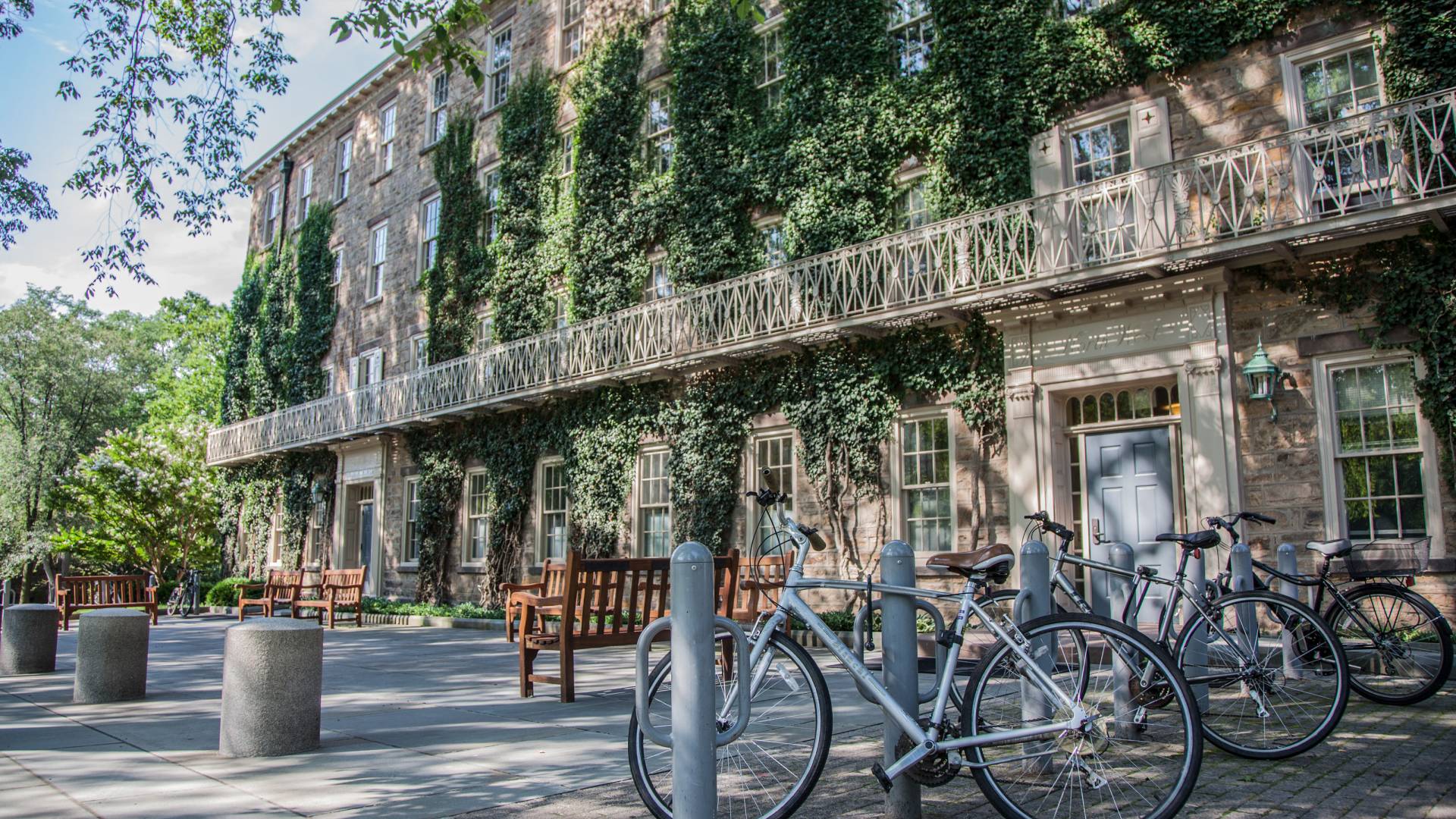Charge from Dean of the College Jill Dolan to the Working Group on Internships and the Undergraduate Curriculum:
The Office of the Dean of the College oversees all aspects of the undergraduate academic experience at Princeton and facilitates student learning and growth throughout their four years on campus.
In addition to the credit-bearing curriculum, students’ program of study includes experiences that transcend the classroom, such as research and service, study abroad, and experiential learning. The place of paid work—in particular, summer employment and internship experiences—in and alongside the formal curriculum warrants renewed consideration and attention within this larger arc.
For instance, the Task Force on General Education recently affirmed the importance of new and varied “modes of learning” that extend student learning beyond the boundaries of typical classroom settings. The Task Force concluded that these practical learning opportunities are best positioned to “highlight the hands-on nature of problem-solving and creativity that comes by integrating theory with practice.”
Accordingly, several new initiatives integrate internships and work experience into the curriculum. The new Service Focus program, for example, requires students to follow a summer service internship with an appropriate complementary course in their sophomore year. In addition, several of the newest certificate programs—specifically Entrepreneurship, Journalism, and History and the Practice of Diplomacy—formally require practical experience to earn a certificate of proficiency in these fields.
The connection between employment and the curriculum also has significance for students because of its implication for employment law. For instance, time-consuming federal processes for work authorization complicate international students’ path to experiential learning in domestic employment settings. If internships were more closely connected to the undergraduate curriculum, work authorization could be granted more expeditiously. In other instances, students cannot pursue unpaid internships in a range of settings because their employers require them to receive course credit to compensate for their lack of financial remuneration.
Given these contextual complications, I am charging a special Working Group on Internships and the Undergraduate Curriculum to review our current policies about awarding academic credit for practical experience, and to recommend alternative approaches, if appropriate. I ask that this group propose different avenues for departments and programs to pursue if they wish to attach curricular import to students’ practical learning in employment settings.
The following questions are particularly urgent:
· Should students receive some form of course credit for summer internships? If so, how should this credit be reflected on the transcript—e.g., in the summer, or as a fall term course that builds on the internship? What kind of graded academic work should be expected from students in these settings and how should it be assessed by faculty?
· Some departments, such as WWS, currently require “Field Experience” for their concentrators. Would this model be appropriate for other departments, should they wish to adopt it? How would this bear upon degree progress?
· What are the strengths and drawbacks of each potential approach, and how could the University attempt to manage the challenges?
· Guided by potential answers to these questions, what process might the University adopt around approving Curricular Practical Training (CPT) for international students?
· What can we learn from peer institutions about mechanisms for awarding academic credit for experiential learning?
· What implications, if any, would new proposals about experiential learning have on co-curricular learning that students will pursue during the new Wintersession?
· What implications, if any, would these proposals have for how students currently approach summer research experiences?
Working Group Members:
· Kimberly Betz, Executive Director, Center for Career Development
· Ashley Boost, Assistant Registrar for Course Information
· Smita Brunnermeier, Lecturer of Economics and Public and International Affairs
· Brian Herrera, Associate Professor of Theater
· Antoine Kahn, Vice Dean, School of Engineering and Applied Science. Stephen C. Macaleer '63 Professor in Engineering and Applied Science. Professor of Electrical Engineering.
· Allen Liu, Class of 2022, Operations Research and Financial Engineering
· Theodor Marcu, Class of 2020, Computer Science
· Margaret Martonosi, Hugh Trumbull Adams ’35 Professor of Computer Science, Director, Keller Center for Innovation in Engineering Education, Co-Chair
· Rebekah Massengill, Associate Dean of the College, Co-Chair
· Olivia Ott, Class of 2020, Woodrow Wilson School
· Mladenka Tomasevic, Senior Associate Director for International Students, Davis International Center






